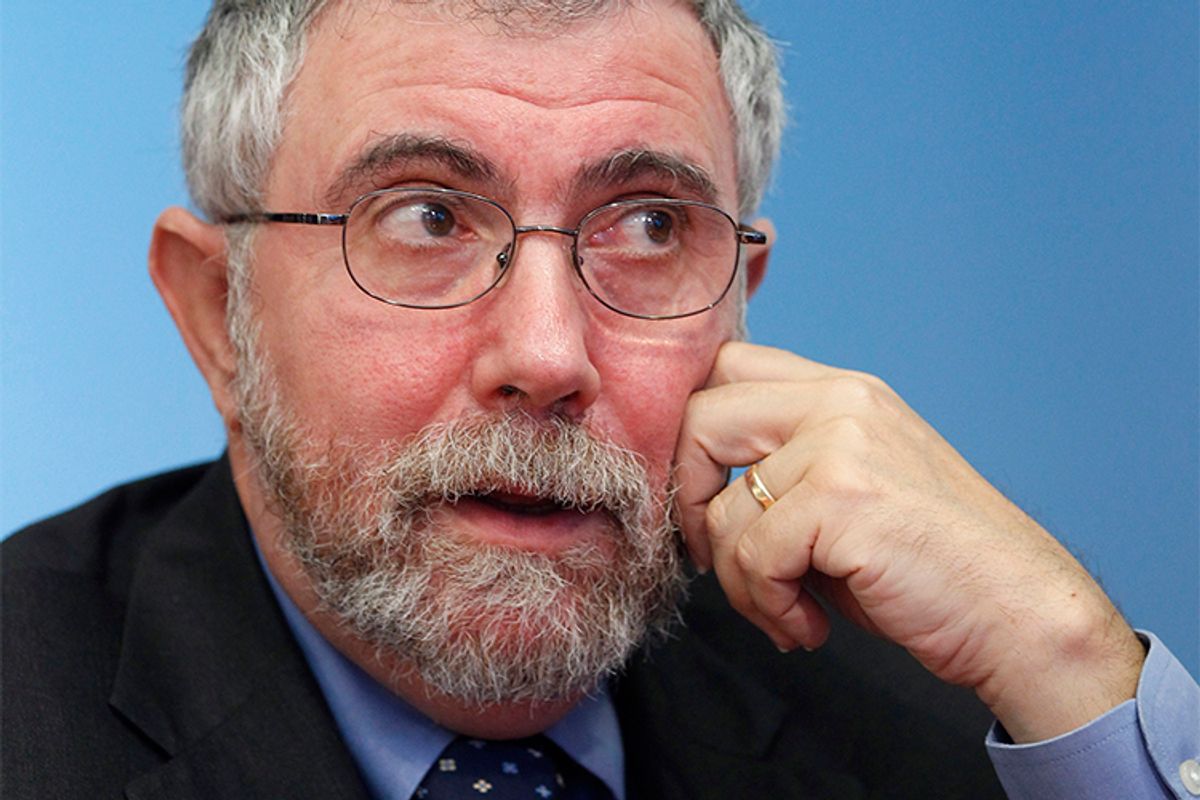In his latest column for the New York Times, award-winning economist and best-selling author Paul Krugman laments the potential long-term consequences of austerity on the U.S. economy and argues that policymakers' obsession with debt today will lead to reduced growth well into the future.
After detailing some of the ways in which the post-recession recovery in the U.S. economy has been paltry at best, Krugman writes, "These dry numbers translate into millions of human tragedies — homes lost, careers destroyed, young people who can’t get their lives started." While there are countless individual stories of woe, Krugman notes that, in the aggregate, the long-term outlook for the U.S. economy is just as dire. One recent paper, Krugman says, estimates that the cost of lost output due to long-term unemployment could be as much as $1 trillion per year.
The "bitter irony," according to Krugman, is that the very same people who speak the most about preserving the country's economic future are the ones responsible for the lack of investment in today's economy that will harm the U.S. for decades to come.
More from Paul Krugman in the New York Times:
And it is, as I said, a bitter irony, because one main reason we’ve done so little about unemployment is the preaching of deficit scolds, who have wrapped themselves in the mantle of long-run responsibility — which they have managed to get identified in the public mind almost entirely with holding down government debt.
This never made sense even in its own terms. As some of us have tried to explain, debt, while it can pose problems, doesn’t make the nation poorer, because it’s money we owe to ourselves. Anyone who talks about how we’re borrowing from our children just hasn’t done the math.
True, debt can indirectly make us poorer if deficits drive up interest rates and thereby discourage productive investment. But that hasn’t been happening. Instead, investment is low because of the economy’s weakness. And one of the main things keeping the economy weak is the depressing effect of cutbacks in public spending — especially, by the way, cuts in public investment — all justified in the name of protecting the future from the wildly exaggerated threat of excessive debt.
Is there any chance of reversing this damage? The Fed researchers are pessimistic, and, once again, I fear that they’re probably right. America will probably spend decades paying for the mistaken priorities of the past few years.



Shares